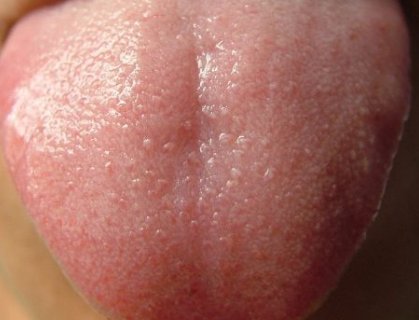--

What Causes Clumpy Sperm
Although it is natural for sperm to have a slightly thick consistency, clumpy sperm may indicate an underlying issue. One common cause of clumpy sperm is a low sperm count. When the sperm concentration is low, the ejaculated fluid may appear thicker and contain clumps of spermatozoa. However, it is important to note that clumpy sperm alone does not provide a definitive diagnosis of low sperm count; a professional fertility evaluation is essential.
Another potential cause of clumpy sperm is poor sperm quality. Sperm morphology refers to the size and shape of sperm cells. Abnormal morphology affects sperm movement and the ability to fertilize an egg. Clumps of abnormally shaped or motile sperm may be present in the ejaculate, indicating potential fertility issues.
Seeking Medical Assistanc
If you notice clumpy sperm, it is advisable to consult with a healthcare professional specializing in fertility. They will be able to evaluate your condition and determine if further testing or treatment is required. A comprehensive fertility analysis often includes a semen analysis to assess sperm count, motility, morphology, and other important factors.
Remember, clumpy sperm alone does not necessarily mean you are infertile. Fertility is a complex matter that involves multiple factors beyond the consistency of your sperm. By seeking medical assistance, you can gain a clearer understanding of your individual situation and explore potential treatment options if needed.
Lifestyle Factors and Sperm Healt
While clumpy sperm can be a cause for concern, it's crucial to remember that lifestyle factors can significantly impact sperm health. Several factors that may affect sperm quality include:
1. Diet and nutrition: A healthy diet rich in antioxidants, vitamins, and minerals is essential for optimal sperm production and function.
2. Alcohol and drug use: Excessive alcohol consumption and drug use may negatively impact sperm count and quality.
3. Smoking: Tobacco use has been linked to decreased sperm production and sperm DNA damage.
4. Heat exposure: Prolonged exposure to high temperatures, such as hot baths or saunas, may temporarily affect sperm production and motility.
Conclusio
While clumpy sperm may raise concerns about fertility, it is important to consult with a healthcare professional who can provide accurate guidance. Remember that assessing fertility requires a comprehensive evaluation beyond sperm consistency. By adopting a healthy lifestyle and seeking appropriate medical assistance, you can better understand your fertility and take steps towards optimizing it.
Remember, this blog post is not a substitute for professional medical advice. If you have concerns about your fertility or sperm health, please consult a medical professional for personalized guidance.
Related FAQs about is it bad if your sperm is clumpy
What are the potential causes of clumpy sperm?
The potential causes of clumpy sperm may include a low sperm count or poor sperm quality due to abnormalities in size, shape, or motility.
Is clumpy sperm a sign of infertility?
Clumpy sperm alone does not necessarily indicate infertility. It is essential to undergo a comprehensive fertility evaluation to determine the underlying factors affecting fertility.
When should I seek medical assistance regarding clumpy sperm?
If you notice clumpy sperm, it is advisable to consult with a healthcare professional specializing in fertility to evaluate your condition and determine if further testing or treatment is required.
Can lifestyle factors affect sperm health?
Yes, certain lifestyle factors such as diet, alcohol and drug use, smoking, and heat exposure can greatly impact sperm health and quality.
What steps can I take to improve sperm health?
You can improve sperm health by adopting a healthy lifestyle that includes a nutritious diet, limiting alcohol and drug use, quitting smoking, and avoiding prolonged exposure to high temperatures.
Glossary about is it bad if your sperm is clumpy
1. Spermatozoa: Spermatozoa, commonly known as sperm cells, are the male reproductive cells responsible for fertilizing an egg to initiate pregnancy.
2. Low Sperm Count: Low sperm count, or oligospermia, refers to a condition in which the semen contains fewer sperm cells than normal.
3. Semen Analysis: Semen analysis is a test that evaluates various parameters of semen, including sperm count, motility, morphology, and other factors, to assess fertility potential.
4. Fertility: Fertility refers to the ability to conceive and produce offspring. It is influenced by various factors, including sperm health, egg quality, and reproductive function.
5. Sperm Morphology: Sperm morphology refers to the size and shape of sperm cells. Abnormal morphology may affect sperm movement and fertility potential.
6. Antioxidants: Antioxidants are substances that help protect cells from damage caused by free radicals, unstable molecules that can harm sperm cells and affect fertility.
7. DNA Damage: DNA damage refers to alterations in the genetic material of sperm cells. DNA damage can impair fertility and increase the risk of certain health conditions in offspring.
8. Sauna: A sauna is a small room or building designed to provide heat and steam, often used for relaxation and health purposes. Prolonged exposure to high temperatures in saunas may temporarily affect sperm production and motility.
9. Oligospermia: Oligospermia, commonly known as low sperm count, is a condition characterized by a low concentration of spermatozoa in the semen.
10. Tobacco: Tobacco refers to products made from the leaves of the Nicotiana tabacum or Nicotiana rustica plants, often processed and consumed by smoking, chewing, or vaping. Tobacco use has been linked to decreased sperm production and sperm DNA damage.
